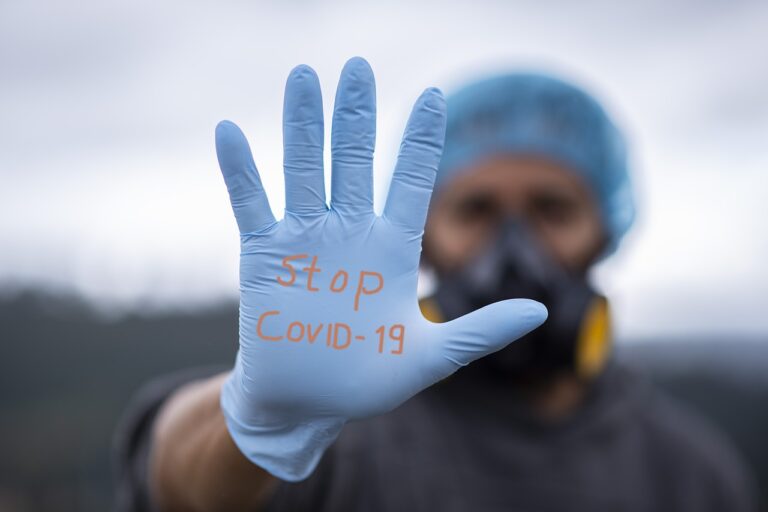Vaccination Awareness and Community Health
Vaccinations play a crucial role in safeguarding community health by preventing the spread of infectious diseases. By immunizing individuals against common illnesses like measles, influenza, and whooping cough, vaccines help create a protective shield around the community. This herd immunity not only protects those who are vaccinated but also shields vulnerable individuals who cannot receive vaccinations due to medical reasons.
Moreover, vaccinations are essential for controlling outbreaks of contagious diseases and reducing the burden on healthcare systems. Through widespread vaccination programs, communities can effectively curb the transmission of illnesses, thereby lowering the number of hospitalizations and medical expenses associated with preventable diseases. By immunizing a significant portion of the population, vaccinations contribute to the overall well-being of the community and promote a healthier society.
Common Misconceptions About Vaccinations
Vaccination has long been a subject of debate, with some individuals expressing concerns about its safety and efficacy. One common misconception is that vaccines can cause the diseases they are meant to prevent. This belief often stems from the fact that some vaccines contain a weakened or inactivated form of the virus. However, these components are not capable of causing the disease itself but rather stimulate the body’s immune response to build immunity against it.
Another misconception is that vaccines contain harmful chemicals that can have detrimental effects on health. While it is true that vaccines may contain small amounts of preservatives or adjuvants to enhance their effectiveness and ensure safety during storage, extensive research and testing are conducted to ensure that these ingredients are safe for use. Additionally, the benefits of vaccination in preventing serious diseases far outweigh the potential risks associated with these ingredients.
The Impact of Vaccination on Preventable Diseases
Immunizations have played a crucial role in reducing the prevalence of preventable diseases across the globe. By introducing vaccines into communities, the transmission of diseases such as measles, polio, and whooping cough has significantly decreased. This has led to a lower burden on healthcare systems and improved overall public health outcomes.
Moreover, widespread vaccination programs have resulted in the eradication of certain diseases in several regions. For instance, smallpox was officially declared eradicated in 1980, thanks to a successful global vaccination campaign. These achievements highlight the profound impact that vaccinations can have on preventing the spread of contagious diseases and saving lives.
• Vaccines have significantly reduced the transmission of diseases like measles, polio, and whooping cough
• Lower burden on healthcare systems due to decreased prevalence of preventable diseases
• Improved overall public health outcomes as a result of vaccination programs
Furthermore, vaccinations not only protect individuals who receive them but also contribute to herd immunity. When a large portion of the population is immunized against a particular disease, it becomes more difficult for the virus or bacteria to spread. This helps protect those who are unable to be vaccinated, such as infants or individuals with compromised immune systems.
In addition to preventing illness and saving lives, vaccinations also have economic benefits. The cost of treating vaccine-preventable diseases far outweighs the cost of vaccination programs. By investing in immunization efforts, governments can save money on healthcare expenses and improve productivity by reducing sick days taken by employees.
• Vaccinations contribute to herd immunity, protecting vulnerable populations
• Economic benefits include cost savings on healthcare expenses and improved productivity
Overall, the impact of vaccination on preventable diseases cannot be overstated. From reducing transmission rates and eradicating certain illnesses to protecting vulnerable populations and saving money on healthcare costs, vaccines play a crucial role in promoting public health worldwide. It is essential for communities to continue supporting vaccination efforts in order to maintain these positive outcomes and further reduce the burden of preventable diseases globally.
• Vaccines play a crucial role in promoting public health worldwide
• Continued support for vaccination efforts is necessary to sustain positive outcomes
Why are vaccinations important for community health?
Vaccinations are important for community health because they help prevent the spread of preventable diseases, protect those who are unable to be vaccinated, and contribute to herd immunity.
What are some common misconceptions about vaccinations?
Some common misconceptions about vaccinations include beliefs that they cause autism, contain harmful ingredients, or are not effective. However, scientific research has repeatedly shown that vaccinations are safe and effective.
How has vaccination impacted preventable diseases?
Vaccination has had a significant impact on preventable diseases by reducing the incidence of diseases such as measles, mumps, polio, and influenza. Vaccination campaigns have led to a decrease in outbreaks and deaths related to these diseases.
Are there any risks associated with vaccinations?
Like any medical intervention, vaccinations may have some risks, such as mild side effects like soreness at the injection site or a low-grade fever. However, the benefits of vaccination far outweigh the risks, as they protect individuals and communities from serious and potentially deadly diseases.







